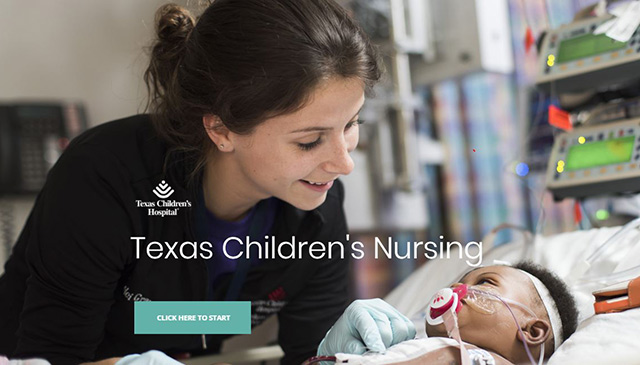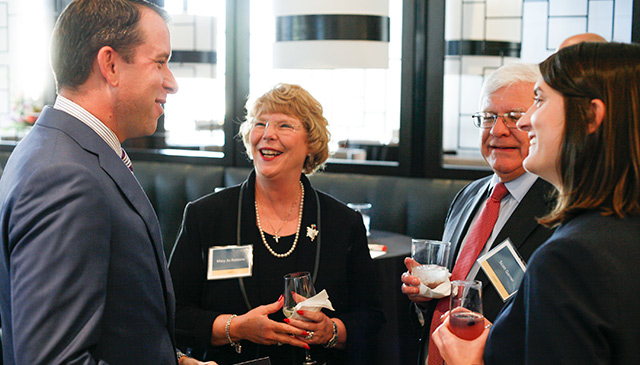 As part of National Genetic Counselor Awareness Day on November 9, Texas Children’s recognizes the crucial role our genetic counselors play every day for our patients and their families. In fact, genetic counselor was named one of the “25 Amazing Healthcare Support Jobs” and one of the “100 Best Jobs” in 2017 by U.S. News and World Report.
As part of National Genetic Counselor Awareness Day on November 9, Texas Children’s recognizes the crucial role our genetic counselors play every day for our patients and their families. In fact, genetic counselor was named one of the “25 Amazing Healthcare Support Jobs” and one of the “100 Best Jobs” in 2017 by U.S. News and World Report.
The demand for genetic counselors continues to grow with the increase in our understanding of the genetic contributions to disease. As a liaison between the physician and patient, genetic counselors are an important part of the health care team. Specially trained in the areas of basic science, medical genetics, psychology and epidemiology, genetic counselors work closely with our physicians from various pediatric subspecialties to evaluate a family’s risk of an inherited medical condition, decide what genetic tests to order, and interpret and use the test results to provide guidance to patients and their families. With over 30 genetic counselors at Texas Children’s alone spread across many subspecialties, genetic counselors play a unique role that illustrates the importance of genetics in all areas of medicine.
“Since genetics is a very fast-paced and rapidly evolving field, we have to stay up to date with current genetic research and testing to provide patients with the most accurate information and best care possible,” said Andi Lewis, a Texas Children’s pediatric genetic counselor in the general genetics, neurofibromatosis, and cardiovascular genetics clinics.
Genetic counseling can be a very time-intensive process with a new patient appointment typically ranging from 45 to 60 minutes. Much preparation occurs prior to the appointment, which involves gathering a patient’s medical records and history, drawing the family tree or pedigree, and researching various possible diagnoses and recommendations for genetic testing options for the family.
Whether delivering good or not so good news to patients and their families, empowering them with the knowledge to make an informed decision lies at the heart of genetic counseling.
“With genetics being a growing component of many other subspecialties, there is a huge demand for genetic counselors to work within all areas of medicine so that we can help our patients and families understand the potential impact that genetics can play on their lives while supporting them throughout the process,” said Pilar Magoulas, pediatric genetic counselor at Texas Children’s and chief of the Division of Genetic Counseling at Baylor College of Medicine, Department of Molecular and Human Genetics.
Texas is proud to have over 100 genetic counselors with over 30 genetic counselors at Texas Children’s Hospital and Baylor College of Medicine alone. There are 37 genetic counseling graduate training programs across the United States and Canada. Baylor and the Department of Molecular and Human Genetics along with the School of Allied Health has created the second Genetic Counseling training program in Texas and will enroll its first class in the fall of 2018.
For more information about Texas Children’s genetic counselors, click here. For more information on the genetic counseling profession, click here.


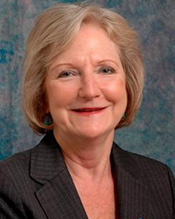 The Inaugural Dr. Barbara J. Anderson lecture was held on October, 27. This lectureship was created to honor Barbara J. Anderson, Ph.D., associate head of the Section of Psychology and professor of Pediatrics, who recently retired after 15 years on faculty at Baylor College of Medicine and Texas Children’s Hospital. Dr. Anderson’s contributions to the diabetes community and behavioral science over her 40-year career have been invaluable to advancing research and practice in pediatric diabetes and supporting the careers of many scientists and providers in academic medicine. Prior to her time in Houston, she was on faculty at Washington University School of Medicine, the University of Michigan, and Harvard Medical School/Joslin Diabetes Center. Dr. Anderson has had continuous grant support from the National Institutes of Health, the Leona M. and Harry B. Helmsley Charitable Trust, JDRF, and other funders since 1979.
The Inaugural Dr. Barbara J. Anderson lecture was held on October, 27. This lectureship was created to honor Barbara J. Anderson, Ph.D., associate head of the Section of Psychology and professor of Pediatrics, who recently retired after 15 years on faculty at Baylor College of Medicine and Texas Children’s Hospital. Dr. Anderson’s contributions to the diabetes community and behavioral science over her 40-year career have been invaluable to advancing research and practice in pediatric diabetes and supporting the careers of many scientists and providers in academic medicine. Prior to her time in Houston, she was on faculty at Washington University School of Medicine, the University of Michigan, and Harvard Medical School/Joslin Diabetes Center. Dr. Anderson has had continuous grant support from the National Institutes of Health, the Leona M. and Harry B. Helmsley Charitable Trust, JDRF, and other funders since 1979.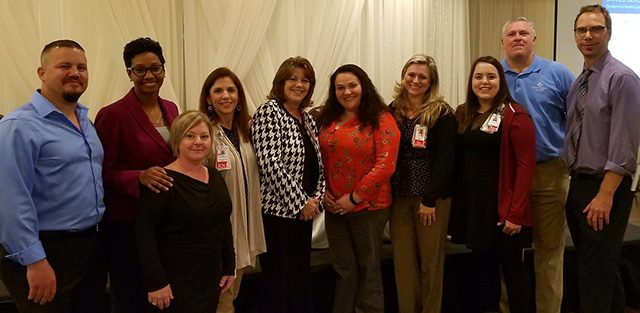 Chief Nursing Officer Mary Jo Andre participated on the CNO panel at the third Annual Houston Regional Shared Governance Conference which was held on November 7 at the Palazzio Reception Venue.
Chief Nursing Officer Mary Jo Andre participated on the CNO panel at the third Annual Houston Regional Shared Governance Conference which was held on November 7 at the Palazzio Reception Venue.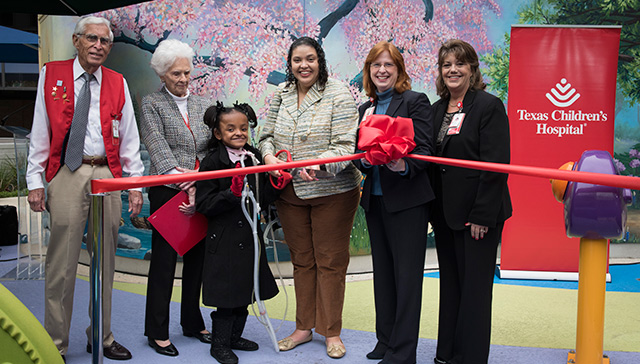 On November 9, Texas Children’s dedicated the Merle C. Donigan Play Garden during a special ribbon cutting ceremony attended by more than 50 people including Texas Children’s leadership and staff, members of the Building and Grounds Committee of the Board of Trustees, The Auxiliary to Texas Children’s Hospital, and our external construction and design partners who helped make this vision a reality for our patients and their families.
On November 9, Texas Children’s dedicated the Merle C. Donigan Play Garden during a special ribbon cutting ceremony attended by more than 50 people including Texas Children’s leadership and staff, members of the Building and Grounds Committee of the Board of Trustees, The Auxiliary to Texas Children’s Hospital, and our external construction and design partners who helped make this vision a reality for our patients and their families.